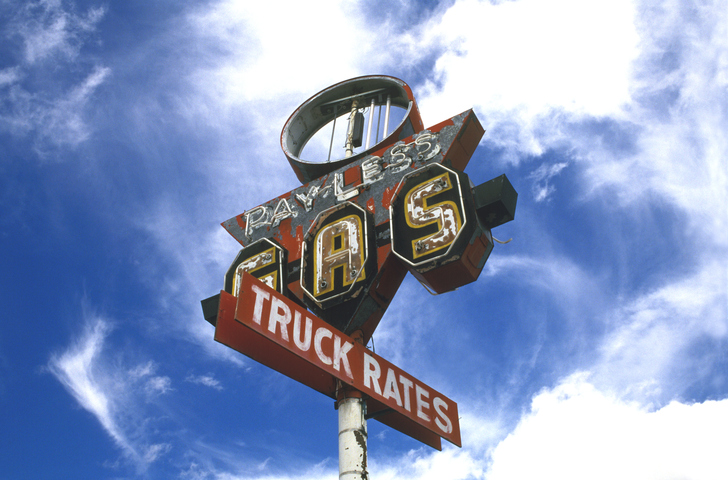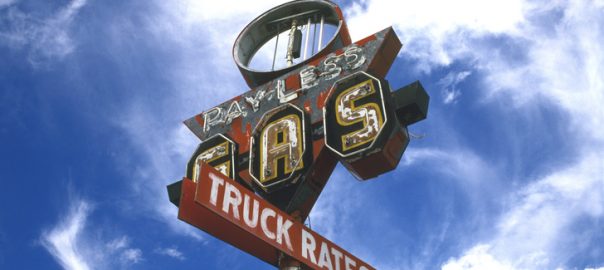If you have been in the transportation industry for any amount of time you know gasoline and diesel prices are like an unpredictable roller coaster.  All it takes is a single hiccup in the Middle East before someone decides to clamp down on their crude oil and the fuel prices shoot through the roof.
All it takes is a single hiccup in the Middle East before someone decides to clamp down on their crude oil and the fuel prices shoot through the roof.
While prices are ticking slightly lower over the past few days, they have been much higher for the year overall. There was a brief reprieve, but the demand globally continues to rise. This is especially true as the economy continues to grow and more people travel.
Fuel Price Confusion
The Organization of Petroleum Exporting Companies (OPEC) usually determines how many gallons they are going to pump, so if the demand increases, so do the prices. Not to mention other forces which affect the fuel prices. There are sanctions on Iran, fewer exports from Venezuela, and Chinese tariffs are all expected to take a bite.
Dan McTeague, the GasBuddy.com senior analyst states, “There’s no certainty here in terms of what form prices will take, but the momentum seems to be on the upside: robust demand for petroleum prices. And that’s likely to lead to higher prices.”
Tom Kloza, the head of energy analysis at Oil Price Information Service, had no idea either. “If I were in a debating class, I would have a pretty good argument to suggest that prices might go back to $50-60 and I would probably have a pretty good argument that the future is above $90.”
Making a Change on Your Fuel Costs
Despite the ups and downs of the oil industry and prices, a truck driver is the one in charge of how expensive their trips will cost. Every trucker who takes an orientation for a trucking company, knows they are expected to exhibit behaviors that conserve fuel.
Proper maintenance on your truck will ensure no mechanical issues are costing more in fuel. Maintaining proper tire pressure and tuning your engine prior to each trip will save money. Whether you are an owner-operator or work for a company, saving money is always the goal. Here are five steps to help you conserve fuel.
1) Do not Idle Your Truck
Not letting your truck idle is one of the biggest steps you can take to reduce fuel consumption. Some truck driver’s use idling to warm their trucks or to prevent having to start their truck when they are not staying for long. If they cut down warm-up times, shut the engine down when not rolling, and practice better idling habits, it can save on fuel and money.
2) Use Shore Power
Some truck stops offer shore power, so truck driver’s do not have to burn fuel while idling. In extreme weather conditions, truckers may not have any other choice that to let the engine idle for heat or air conditioning.
Shore power can heat or cool the truck without using fuel. Relying on the truck stop’s shore power to provide electricity is much like an RV getting plugged in. The truck driver must pay for these services, but it is cheaper and saves an average of $3,240 each year.
3) Fix Your Driving Habits
Learning a more consistent drive style will help conserve fuel and save on costs. A truck driver’s habits of speeding up, slowing down, or cruising will determine how much fuel they use each trip. An example would be anticipating the stoplight. Slow down, take your foot off the gas or brake, and allow your truck to slow down naturally until the light turns green. Of course, stop if needed, but the less you use the pedals, the more you are likely to save.
4) Keep Great Distance
The more distance you keep between you and the vehicle ahead of you, the less you will have to brake or slow down. Maintaining a comfortable pace reduces the number of times you will need to accelerate. Stop-and-go driving is not only bad for the truck’s maintenance, but it is also terrible for fuel mileage.
5) Slow Down
The goal of a truck driver’s job is to arrive at your destination on time. However, the faster you drive, the worse it is on your fuel economy. Every MPH over 55 drops your fuel economy about 0.1 miles per gallon. This adds up, especially on those long-haul trips.
While you may not be the decider on the cost of fuel, you have some control over how much you spend on fuel. By practicing better driving habits, not only will you be safer, but you will save on your pocketbook. Even if you are a company driver; your boss will certainly appreciate these better driving practices and cheaper fuel bills.


